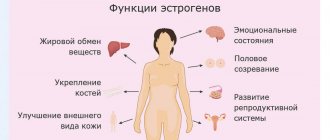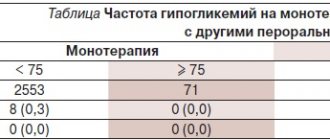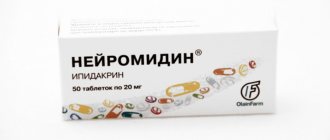Pharmacodynamics and pharmacokinetics
When applied to the skin, Lyoton gel relieves swelling, eliminates increased permeability of vascular walls and prevents the release of fluid (exudate) into adjacent tissues, stops the inflammatory process, inhibits the activity of the blood coagulation system (has an anticoagulant anticoagulant effect).
After administration of the drug, heparin is detected in the blood plasma over the next 24 hours, with plasma concentrations reaching maximum values after 8 hours.
Excretion of the substance and its metabolites is carried out primarily by the kidneys . When applied to the skin, heparin does not affect hemocoagulation .
Composition and characteristics of Lyoton
Lyoton is a colorless gel with a slight yellowish tint, viscous in consistency and with a pleasant aroma. It is most often used externally to treat venous diseases, as well as thrombophlebitis.
The main ingredient of the ointment, which determines its anticoagulative effect, is heparin. The concentration of the substance is 1000 IU/g. Heparin works by preventing the formation of clots and blood clotting. The liquefying effect of the component helps reduce the load on the veins, which creates a feeling of “lightness in the legs.”
In order for the results from using the ointment to be noticeable and last for a long time, you need to use it for a long time. The active substances of the gel enter the human body through the pores, providing a complex result at the local level:
- reduce the area of inflammatory processes;
- normalize blood circulation in the legs;
- reduce swelling of the legs.
The anti-inflammatory effect is associated with the presence of a complex of excipients in the drug, including carbomer.
The highest concentration in the body is observed 7-9 hours after application to the skin. Excretion is carried out as a result of the work of the kidneys.
Indications for use
Lyoton 1000 ointment is recommended for use in diseases of the superficial veins , including those complicated by phlebothrombosis (a condition that is associated with the formation in the lumen of a vein of a blood clot , partially or completely obstructing the vessel), thrombophlebitis ( thrombosis , which is accompanied by inflammation of the vascular wall and blocking of the lumen vessel thrombus ) or superficial periphlebitis (acute or chronic inflammation of the vein wall).
It is considered advisable to use Lyoton ointment to eliminate complications caused by surgery on the veins , the consequences of injuries and sprains of the capsular-ligamentous and musculotendinous apparatus , damage to soft tissues and the musculoskeletal system .
The product effectively relieves localized tissue swelling , eliminates inflammatory infiltrate, and accelerates the resorption of subcutaneous hematomas .
Overdose
To date, there have been no reports of overdose cases. Since the systemic absorption of heparin sodium is extremely insignificant, there is no danger of overdose with the drug when applied topically.
If the gel is accidentally swallowed, a child may experience nausea and vomiting. To help the victim, the stomach should be rinsed and, if necessary, symptomatic treatment should be prescribed.
The antidote is protamine sulfate .
special instructions
The gel contains methyl and propyl p-hydroxybenzoate as auxiliary components, therefore Lyoton is contraindicated in persons with a known allergy to parabens .
In patients with hemorrhagic symptoms, the advisability of using the drug should be carefully considered.
The drug should not be used for bleeding and skin lesions with a purulent process, applied to infected areas of the skin and open wounds, mucous membranes, and areas of skin around the eyes. It is also necessary to avoid getting the gel in the eyes.
Patients with hemocoagulation are not recommended to treat large areas of the skin with the drug. When treating phlebitis , it is contraindicated to rub the ointment into the skin.
Since experience with Lyoton in children is limited, the drug should not be prescribed for the treatment of this category of patients.
The drug does not affect the ability to drive vehicles and does not slow down mental and motor activity.
Analogs Lyoton 1000
Level 4 ATC code matches:
Girudoproct
Heparoid Zentiva
Heparin ointment
Heparin
Gepatrombin G
Trombless
Venolife
Hepatrombin
Structural analogues of the Lyoton 1000 gel (generics) are the drugs Heparin-Acrigel 1000 , Laventum , Trombless , Heparin .
The group of drugs with similar mechanisms of action include: Venitan Forte , Venolife , Heparin ointment , Heparoid Zentiva , Hepatrombin , Dolobene , Contractubex , Venabos , Trombless Plus , Troxevasin Neo .
Russian analogues of Lyoton: Heparin , Heparin-Acrigel , Heparin ointment .
The price of analogues is from 35 Russian rubles (purchase of a 25 g tube of Heparin ointment produced by the Russian company Biosintez OJSC will cost approximately 35-60 rubles).
Lyoton or Heparin ointment?
Gel and its analog Heparin ointment are direct anticoagulants . The main mechanism of their antithrombotic action is related to thrombin .
Heparin sodium salt , which is the active component of Lyoton, is present in Heparin ointment in a lower concentration - 100 IU/gram (in Lyoton its concentration in one gram of the product is 1000 IU). However, in addition to sodium heparin Heparin ointment also contains benzocaine ( a broad-spectrum local anesthetic the antiplatelet agent benzyl nicotinate .
Assessing the effectiveness of both drugs, patients note that the effect of their use is approximately the same, so for many, when choosing a drug, the deciding factor is the price - Heparin ointment is an order of magnitude cheaper than its analogue.
Lyoton during pregnancy
Gel Lyoton during pregnancy and during breastfeeding (lactation) is allowed to be used only under strict indications.
Typically, pregnant women are prescribed to use the drug throughout the entire period of pregnancy (and sometimes after the birth of the child) in courses according to the scheme: a month of use, a month of break.
Caution should be exercised when first applying the product, since during pregnancy the body becomes more susceptible to allergens , and the likelihood of allergic reactions increases.
Therefore, if treatment is accompanied by unpleasant symptoms such as itching, redness of the skin, burning, etc., you should stop using the drug and consult a doctor.
As for reviews of the use of Lyoton by pregnant women, they are very diverse. Some did not see results even after several months of treatment, while others, on the contrary, note the high effectiveness of the medicine.
Contraindications and side effects from using Lyoton
Lyoton is a complete medicine, not a dietary supplement, so its scope of application is limited. It should not be used in patients who have one or more symptoms:
- presence or suspicion of internal bleeding;
- problems with blood clotting;
- severe liver disease (for example, cirrhosis);
- complicated ulcers of the intestines and stomach;
- postoperative conditions;
- menstrual cycle;
- individual intolerance to heparin.
Inflammatory processes with the release of pus cannot be treated with Lyoton. It is strictly forbidden to apply ointment to open wounds. There are no significant side effects from gel treatment: overdose is unlikely due to external application and the slow absorption process through the pores. With prolonged use of the drug, local allergic reactions may occur.
Reviews about Lyoton 1000
Reviews about Lyoton 1000 gel are mostly positive, as can be judged by the fairly high rating of the product on specialized Internet resources - 4-4.5 points out of 5.
Thanks to the high concentration of heparin, the ointment prevents the appearance of spider veins , relieves heaviness in the legs, eliminates swelling and pain, and is effective for bruises and sprains. Many women see the drug as practically the only salvation for tired legs after a whole day on their feet (and often in high heels).
Very often, the drug is prescribed to pregnant women, since during the period of bearing a child, the likelihood of problems associated with venous insufficiency .
During pregnancy - reviews are eloquent confirmation of this - Lyoton effectively fights stagnation of venous blood , prevents the occurrence of thrombophlebitis and severe edema, improves the tone of vascular walls, and relieves fatigue.
Negative reviews about the gel are due to the fact that after quite a long time of using this drug, patients were unable to cure varicose veins or notice obvious improvements in the condition of their legs.
Commenting on such statements, experts never tire of repeating that Lyoton does not treat varicose veins , but is only a supportive agent, the use of which allows to slow down the progression of the pathological process and prevent the development of its complications.
In order for the effect of using the cream to be noticeable, treatment should be supplemented by wearing compression stockings, a contrast shower for the legs, swimming, and walking.
It is equally important to stop crossing your legs, instill in yourself the habit of regularly resting your feet (at least try to keep them in an elevated position more often), and give preference to comfortable shoes.
On the Internet you can also often find positive reviews about Lyoton when used on the face. Despite the fact that the main indication for use is venous diseases, the range of use of the drug is much wider.
For the face, the gel is indicated as a decongestant, firming, toning and refreshing agent. Some women even use it as a base for makeup, and plastic surgeons and cosmetologists often recommend the ointment to normalize the condition of facial skin after a series of beauty procedures or, for example, blepharoplasty.
Rules of application
Achieving the desired result in the shortest possible time requires compliance with a number of rules for using the drug:
- the gel is applied in the necessary and sufficient volumes to the affected area;
- Lyoton should be rubbed in with gentle pressing movements until completely absorbed by the skin;
- The product is applied to diseased areas 1 to 3 times a day.
There are no specific requirements for how much gel to use. It is recommended to rub in 3 to 8 cm of the drug per application, but this figure may vary depending on the area of the affected area.
The positive effect of the product appears no earlier than after a week of regular application.
Treatment of varicose veins involves taking a 3-week course, which is repeated after a month if necessary.
In the presence of more serious vein diseases, therapy is carried out in combination with other drugs and may take more than a month.
Price of gel Lyoton 1000
Price Lyoton 1000 in Ukraine
The price of Lyoton gel in Kharkov, Kyiv and other large cities of Ukraine differs slightly.
The price of the ointment produced in 30 g tubes is from 90 UAH. You can buy a 50 g tube of cream for an average of 160 UAH.
How much does the gel cost in Russian pharmacies?
The cost of the drug depends on the volume of the tube. Buying a 30 g tube will cost approximately 350 rubles. The average price of Lyoton in 50 g tubes is 450 rubles, in 100 g tubes - 700 rubles.
- Online pharmacies in RussiaRussia
- Online pharmacies in UkraineUkraine
- Online pharmacies in KazakhstanKazakhstan
ZdravCity
- Lyoton 1000 gel 50gMenarini A.
RUR 698 order - Lyoton 1000 gel 30g Menarini Manufacturing Logistics and Services S.r.L.
RUR 518 order
- Lyoton 1000 gel 100gA.Menarini Manufacturing Logistik and Servicer
1070 rub. order
Pharmacy Dialogue
- Lyoton 1000 gel (tube 30g)Berlin-Chemie AG/Menarini
468 RUR order
- Lyoton 1000 gel (tube 100g)Berlin-Chemie AG/Menarini
RUB 1,263 order
- Lyoton 1000 gel tube 50gBerlin-Chemie AG/Menarini
RUB 632 order
show more
Pharmacy24
- Lyoton 1000 30 g gel A. Menarini Manufacturing, Logistics and Services S.r.L., Italy
141 UAH.order - Lyoton 1000 50 g gel A. Menarini Manufacturing, Logistics and Services S.r.L., Italy
200 UAH order
PaniPharmacy
- Lyoton 1000 gel Lyoton 1000 gel 30g Italy, Menarirni Manufacturing
166 UAH order
- Lyoton 1000 gel Lyoton 1000 gel 50g Italy, Menarirni Manufacturing
227 UAH order
show more
Buy Lyoton 1000 gel 1000 units/g 50g in pharmacies
Instructions for use Lyoton 1000 gel Lyoton 1000 gel 1000 units/g 50g
Dosage forms gel 1000IU/g 50g Synonyms Heparin Heparin-Acrigel 1000 Heparin-sodium Brown Heparin-Ferein Lavenum Trombless Thrombogel 1000 Group Direct-acting anticoagulants International nonproprietary name Heparin sodium Composition Active substance - heparin sodium. Manufacturers A. Menarini Manufacturing Logistics and Services S.r.L. (Italy) Pharmacological action Anticoagulation, fibrinolytic, antiaggregation. The complex with antithrombin III inhibits thrombus formation: it binds activated factor X and inhibits the conversion of prothrombin to thrombin. In large doses, it inactivates thrombin and reduces the conversion of fibrinogen to fibrin, preventing the activation of the fibrin-stabilizing factor. The highest bioavailability is observed with intravenous administration; with subcutaneous administration, bioavailability is low, maximum concentration is achieved after 2-4 hours; half-life is 1-2 hours; in plasma is mainly in a protein-bound state. In patients with coronary artery disease (in combination with aspirin), it reduces the risk of acute coronary artery thrombosis, myocardial infarction and sudden death. Reduces the frequency of recurrent infarctions and mortality in patients who have had myocardial infarction. In high doses it is effective for pulmonary embolism and venous thrombosis, in small doses it is effective for the prevention of venous thromboembolism, incl. after surgical operations; with intravenous administration, blood coagulation slows down almost immediately, with intramuscular injection - after 15-30 minutes, with subcutaneous administration - after 40-60 minutes, after inhalation the maximum effect is within a day; the duration of the anticoagulation effect is respectively 4-5 hours, 6 hours, 8 hours, 1-2 weeks, the therapeutic effect - prevention of thrombus formation - lasts much longer. Deficiency of antithrombin III in plasma or at the site of thrombosis may limit the antithrombotic effect of heparin. Side effects Dizziness, headaches, nausea, anorexia, vomiting, diarrhea, alopecia; early (2-4 days of treatment) and late (autoimmune) thrombocytopenia; hemorrhagic complications - bleeding in the gastrointestinal tract or urinary tract, retroperitoneal hemorrhages in the ovaries, adrenal glands (with the development of acute adrenal insufficiency), osteoporosis, soft tissue calcification, inhibition of aldosterone synthesis, increased levels of transaminases in the blood, allergic reactions (fever, rashes, bronchial asthma, anaphylactoid reaction), local irritation, hematoma, pain upon injection. Indications for use : Unstable angina, acute myocardial infarction; thromboembolic complications during myocardial infarction, operations on the heart and blood vessels, thromboembolism of pulmonary and cerebral vessels, thrombophlebitis; DIC syndrome, prevention of microthrombosis and microcirculation disorders; renal vein thrombosis; hemolytic-uremic syndrome; atrial fibrillation, mitral heart defects; bacterial endocarditis; glomerulonephritis; lupus nephritis; rheumatism; bronchial asthma; carrying out extracorporeal methods (extracorporeal circulation during cardiac surgery, hemosorption, hemodialysis, peritoneal dialysis, cytapheresis), forced diuresis; flushing venous catheters. Contraindications Hypersensitivity, hemorrhagic diathesis, leukemia, anemia, increased vascular permeability, polyps, malignant neoplasms and ulcerative lesions of the gastrointestinal tract, severe dysfunction of the liver and kidneys, surgery on the brain and spine. Overdose Symptoms: bleeding of varying severity. Treatment: in case of minor bleeding, reduce the dose or stop using the drug; in case of severe bleeding, a 1% solution of protamine sulfate is slowly administered intravenously. Interaction The effectiveness is enhanced by acetylsalicylic acid, dextran, phenylbutazone, ibuprofen, indomethacin, warfarin, dicoumarin, and weakened by cardiac glycosides, tetracyclines, antihistamines, nicotinic acid, ethacrynic acid. Special instructions Use during pregnancy and breastfeeding is possible only under strict indications. Constant monitoring of blood clotting time is necessary; withdrawal should be carried out gradually. Storage conditions At room temperature.


